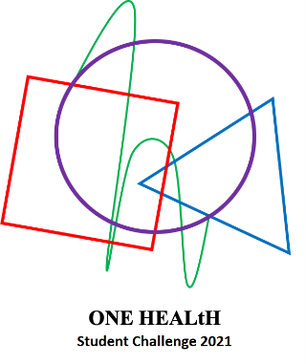 By Debrah Makinde, Biology and Humanities student Growing up I have always loved school. As a young black female immigrant who moved to Canada at the age of 11, school was the only thing that I looked forward to. For me, school was a place where I could connect, learn and engage with other students and teachers. I felt that school was the perfect opportunity for me to contribute to the community and to create a “home away from home” in a sense. However, I quickly realized that this new community that I so badly wanted to be a part of wasn’t so welcoming. I remember feeling like an outcast because no one understood me or even tried to. Not only did they not understand me, but they judged me. Due to me being the only black student in the entire school, I felt defeated. I felt like my voice would never be heard. All of this affected me physically, emotionally and mentally – up until today I am still healing from this. I mention all of this to emphasize that education, health and wellbeing are intrinsically linked, especially in the black community. Education shapes lives – it is key to reducing socioeconomic and political inequalities. It is also associated with health behaviours and plays an important role in health by shaping opportunities. According to Statistics Canada, black men and women were almost half as likely to hold a bachelor’s degree or higher compared to their counterparts in the region of their population. Thus, the unemployment rates for both black men and women were about one and a half times higher than the rates for women and men in the rest of the population. These statistics prove that higher education is essential for the black community because it plays a role in our wellbeing. Not only is education important, but diversity in these institutions is critical. In the article “Imbalance: Mental Health in Higher Education”, Heather Clark mentions that “diversity in education is intersectional and mental health is a significant social identity impacting the experiences of students in higher education.” This article also mentions that minority racial and ethnic populations are more likely to have poor mental health. Thus, having a more diverse institution would help to decrease mental health disorders among black students. Having a more diverse and inclusive education system helps to enrich the educational experience and overall wellbeing of individuals.  I noticed that once I was able to find a community in school that I related to, school became easier and my overall health improved. For example, at Carleton University I was able to join many organizations such as Carleton Women Interested in Medicine and Health (CWIMH) and Campus Rush which have aided in my education experience and the development of relationships. Once I realized that I was not alone and how much education matters in the black community, I endeavoured to share my thoughts and journey with other students as well. This fosters a sense of community and belonging which is what all students need to thrive physically, emotionally and mentally. As mentioned earlier, education, health and wellbeing are intrinsically linked. Therefore, through education and community work, I think it is important to strive to address anti-Blackness in order to create a world where we feel more included and safe for the betterment of our health. References:
65 Comments
 We want to hear your stories! The CHAIM Centre will be publishing articles written by Carleton students in recognition of Black History Month. We are now accepting submissions for brief (500-700 word) blog-style articles that focus on issues related to Black health and wellness in Canada. These stories could include social and environmental determinants, health promotion, health inequities, strengths and resilience, in addition to opportunities for change. We welcome personal style articles. Our goal is to raise awareness about health and wellness in relation to ethno-racial groups. We recognize that Black people face disproportionate health disparities and that race matters in health research. This is an opportunity to amplify these issues through your voice. The CHAIM Centre will select the 3 most compelling articles to be published on our website. They will be assessed on quality of writing, argument strength, and key messaging. If you cite sources or use interviews in your blog, please include the full citation at the end of your document. The deadline for submissions is February 24th.  The 2021 One HEALtH Challenge is officially underway! This year’s Launch Workshop looked a bit different, with organizers, guest speakers, mentors, and an amazing 50+ Carleton undergraduate students coming together virtually to kick off the Challenge. At the Zoom event held last Thursday, students first heard from CHAIM Director Dr. Kim Matheson about the meaning of One Health and the specifics of this year’s Challenge: to design an intervention (an application, program, tool, product, or strategy) that brings together young and older adults in a manner that is mutually beneficial, sustainable, and appropriate under the restrictions that exist to minimize the spread of viruses such as COVID. Next, students listened to a presentation by Dr. Renate Ysseldyk and Dr. Susan Braedley, whose research includes exploring the meaning of age-friendly communities and examining intersections between social identity and well-being in older adults. Catalysts for positive intergenerational interaction, such as technology and music, were also highlighted. After the presentations concluded, students were introduced to their mentors and placed in breakout rooms to start getting to know their teams.
With competitors from areas as diverse as psychology, computer science, and industrial engineering, we’re excited to see what kind of out-of-the-box ideas will emerge from these collaborations. The Challenge runs until March 18th, when teams will pitch their solutions to a panel of expert judges at a final Presentation Day event. Stay tuned! If you have questions about the One HEALtH Challenge or would like to attend the final event, send us an email at [email protected]. |
Archives
March 2023
Categories
All
|

 RSS Feed
RSS Feed